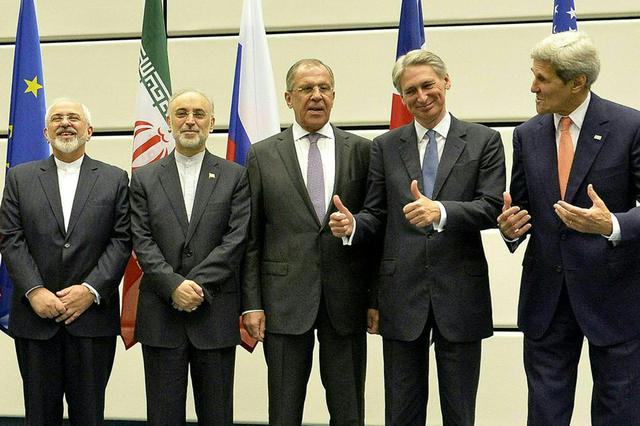Iran's nuclear -- Tehran accuses European leaders of being reluctant to present a "constructive" initiative, and the seven countries renew their stance.
The Reuters agency quoted the Iranian chief nuclear negotiator, Ali Bagheri, as saying that the European countries have failed to present any constructive proposal or initiative amid efforts to revive the 2015 agreement with Iran, while the seven superpowers reaffirmed the need to stop Iran from what it described as its nuclear development.
Bagheri said in statements on the "Press TV" channel (P + 0TV) that the European parties, in reference to Britain, France and Germany, which are among the major powers trying to save the agreement, have failed to come up with any initiative to resolve the differences regarding the lifting of the sanctions on Iran.
A source in the Iranian negotiating delegation in Vienna told Al-Jazeera that negotiations are continuing seriously through Iranian proposals.
The Iranian source mentioned that the European resolution presents exaggerated points that slow the progress of negotiations, as he put it. The source confirmed that Tehran strongly rejects the Europeans' pressure to include demands from outside the nuclear agreement.
On the part of the major international powers, the G-7 foreign ministers reiterated the need to stop Iran ’ s nuclear escalation.
The British Foreign Minister, Maarat Truss, had said that the Vienna meetings represent the last opportunity for Tehran to return to the negotiation table of the nuclear agreement.
It added-on the sidelines of the meetings of the Group of Seven Foreign Ministers in Liverpool-that these countries will not allow Iran to build a nuclear weapon.

It is to be noted that indirect negotiations between Iran and the United States, especially by Europeans, were resumed at the end of last November in Vienna in an effort to salvage the nuclear agreement signed in 2015 aimed at preventing the Islamic Republic from acquiring weapons of mass destruction.
The 2015 agreement lifted much of the sanctions imposed on Tehran, in exchange for restricting its nuclear activities and ensuring the peaceful nature of its program.
For its part, nearly a year after the American withdrawal, the latter reversed its most basic obligations under it.
ISRAEL READY
The Yediot Aharonot quoted a senior official as saying that there was no American opposition to an Israeli attack on Iran.
Haaretz newspaper reported that the Israeli Defense Minister, Rahane Raheinitz, had ordered yesterday, Saturday, the army to prepare for a possible military strike against Iran.
While the Jerusalem Post newspaper reported that during its meeting with the Americans last Thursday, Rutchetz put the Americans in the form of the timetable that his army needs to attack Iran.
The Jerusalem Post quoted a senior diplomatic source as saying that the Americans did not express their opposition to the Israeli preparations when the Halutz offered them the deadline.
IRANIAN WARNING
On the other hand, official Iranian media reported that a senior Iranian military official promised "the aggressors" yesterday, Saturday, to pay a "high price", after publishing a report on American and Israeli plans to conduct possible military training in preparation for strikes on Iranian nuclear sites in case of diplomatic failure.
In a tweeting to an unnamed military official, the Nour News Agency of Iran's highest security agency said, "Create the atmosphere so that military commanders can test Iranian missiles on real targets that will pay a high price to the aggressors."
Earlier, two senior Iranian officials warned that any attack at Tel Abab on Iranian installations would mean the end of Israel, stressing that Tehran was "fully ready" to destroy Israel.










